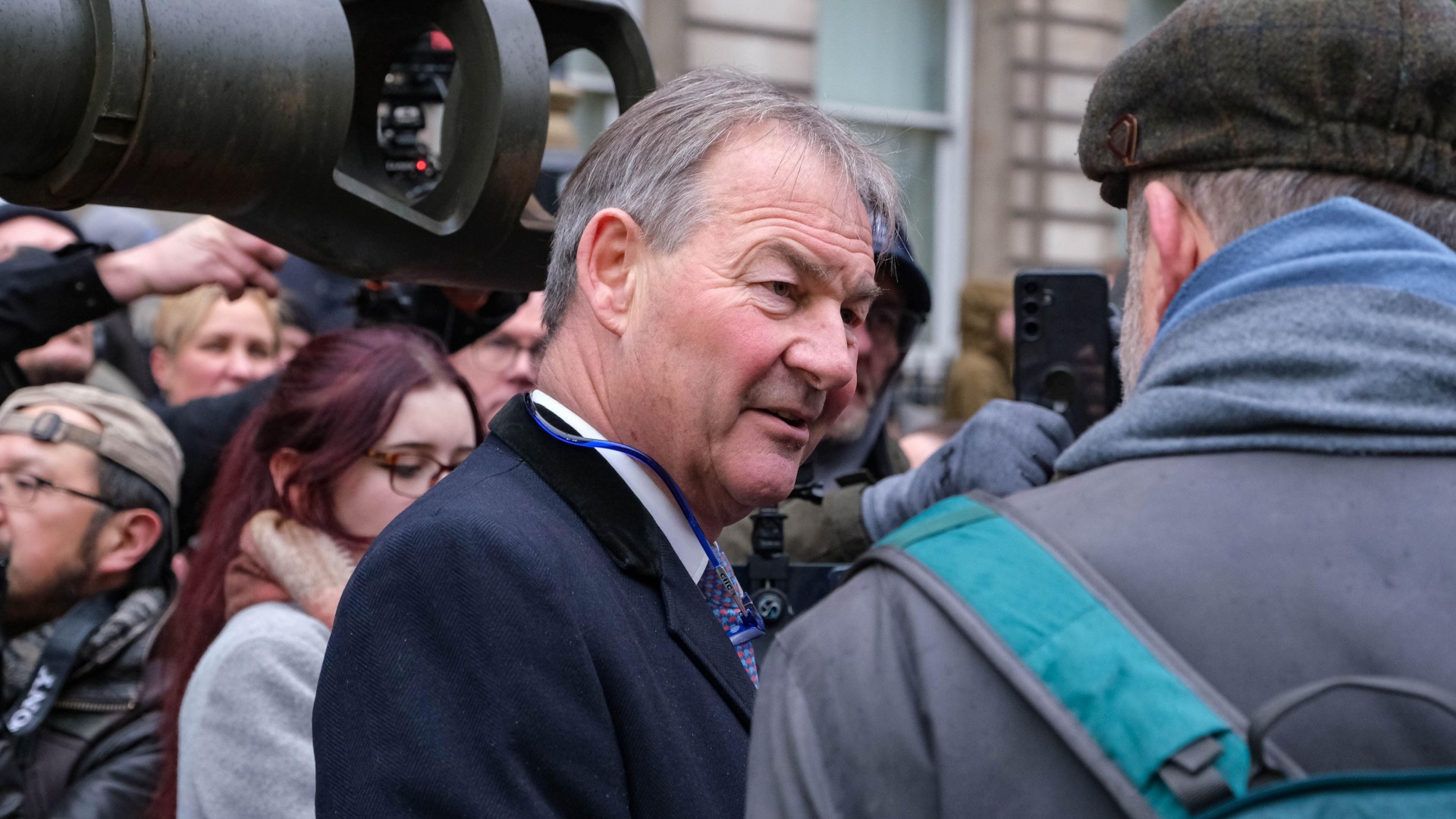Will Reform UK in-fighting check the party's momentum?
Party split goes beyond 'clash of personalities' to 'differences of policy instinct'

A free daily email with the biggest news stories of the day – and the best features from TheWeek.com
You are now subscribed
Your newsletter sign-up was successful
Bitter in-fighting has broken out within Nigel Farage's Reform UK party, culminating in the suspension of one of its five MPs, Rupert Lowe.
Lowe, who represents Great Yarmouth, had the party whip withdrawn following allegations of "serious bullying" in his parliamentary office, and of "threats of physical violence", now reported to the police, against the party chair, Zia Yusuf.
The allegations surfaced shortly after Lowe criticised Farage and the party leadership in a Daily Mail interview, describing Reform under Farage as a "protest party led by the messiah". Lowe has now threatened to "take legal action" for his "political assassination".
The Week
Escape your echo chamber. Get the facts behind the news, plus analysis from multiple perspectives.

Sign up for The Week's Free Newsletters
From our morning news briefing to a weekly Good News Newsletter, get the best of The Week delivered directly to your inbox.
From our morning news briefing to a weekly Good News Newsletter, get the best of The Week delivered directly to your inbox.
'Chopped off at the knees'
I'm "acutely aware", wrote Nigel Farage in The Telegraph, that "the public does not like political parties that engage in constant infighting". That's why Reform has been devoting time to "building a unified national party". But now, thanks to Lowe "unloading a barrage of criticisms against our operations and its main actors, that sense of unity has been dented".
The party has appointed a top barrister to "conduct an independent inquiry" because "to ignore such allegations" would be "inconceivable".
Farage critics will view all this as "Ukip folklore" unfolding again: a "politician in a Farage party becomes so popular as to threaten his supremacy and then gets chopped off at the knees", said Patrick O'Flynn in The Spectator.
But "this is more than just a clash of personalities", said the BBC's Chris Mason. "There are differences of policy instinct between the two men." While Lowe has "advocated mass deportations", for example, Farage "doesn't think that is practical or popular". And Lowe has "praised the jailed far-right activist Stephen Yaxley Lennon", otherwise known as Tommy Robinson, while Farage "refuses to have anything to do with him".
A free daily email with the biggest news stories of the day – and the best features from TheWeek.com
'Success limited by ego'
For some politicians, the Reform fallout was inevitable. In the run-up to last July's election, Tory peer and columnist Daniel Finkelstein wrote on X: "Nigel Farage should hope that he is the only Reform MP elected. Because if there are two or more of them, the Reform parliamentary party will split at some point".
Finkelstein's prediction was "based on a record of success limited by ego," said John Rentoul in The Independent. "Farage has often shone brightly but briefly, and broken everything he touches." His dreams of "displacing the Tories as the largest opposition party at the next election depend on a level of organisation of which Farage and his loyalists have never been capable". And while Kemi Badenoch "must be a little more cheerful today", the real beneficiary of the Reform split will be Keir Starmer.
This spat has shown that, for "all his undoubted skills" Farage's limitations "are just as important". He "will never be as effective a politician as he could be because he is not a team player". This current row means "the chances of a two-term Labour government have increased – slightly but perceptibly".
Sorcha Bradley is a writer at The Week and a regular on “The Week Unwrapped” podcast. She worked at The Week magazine for a year and a half before taking up her current role with the digital team, where she mostly covers UK current affairs and politics. Before joining The Week, Sorcha worked at slow-news start-up Tortoise Media. She has also written for Sky News, The Sunday Times, the London Evening Standard and Grazia magazine, among other publications. She has a master’s in newspaper journalism from City, University of London, where she specialised in political journalism.
-
 Political cartoons for February 15
Political cartoons for February 15Cartoons Sunday's political cartoons include political ventriloquism, Europe in the middle, and more
-
 The broken water companies failing England and Wales
The broken water companies failing England and WalesExplainer With rising bills, deteriorating river health and a lack of investment, regulators face an uphill battle to stabilise the industry
-
 A thrilling foodie city in northern Japan
A thrilling foodie city in northern JapanThe Week Recommends The food scene here is ‘unspoilt’ and ‘fun’
-
 How corrupt is the UK?
How corrupt is the UK?The Explainer Decline in standards ‘risks becoming a defining feature of our political culture’ as Britain falls to lowest ever score on global index
-
 Three consequences from the Jenrick defection
Three consequences from the Jenrick defectionThe Explainer Both Kemi Badenoch and Nigel Farage may claim victory, but Jenrick’s move has ‘all-but ended the chances of any deal to unite the British right’
-
 The high street: Britain’s next political battleground?
The high street: Britain’s next political battleground?In the Spotlight Mass closure of shops and influx of organised crime are fuelling voter anger, and offer an opening for Reform UK
-
 How cryptocurrency is changing politics
How cryptocurrency is changing politicsIn The Spotlight From electoral campaigns to government investments, crypto is everywhere and looks like it’s here to stay
-
 Nigel Farage’s £9mn windfall: will it smooth his path to power?
Nigel Farage’s £9mn windfall: will it smooth his path to power?In Depth The record donation has come amidst rumours of collaboration with the Conservatives and allegations of racism in Farage's school days
-
 ECHR: is Europe about to break with convention?
ECHR: is Europe about to break with convention?Today's Big Question European leaders to look at updating the 75-year-old treaty to help tackle the continent’s migrant wave
-
 Is a Reform-Tory pact becoming more likely?
Is a Reform-Tory pact becoming more likely?Today’s Big Question Nigel Farage’s party is ahead in the polls but still falls well short of a Commons majority, while Conservatives are still losing MPs to Reform
-
 Nigel Farage: was he a teenage racist?
Nigel Farage: was he a teenage racist?Talking Point Farage’s denials have been ‘slippery’, but should claims from Reform leader’s schooldays be on the news agenda?